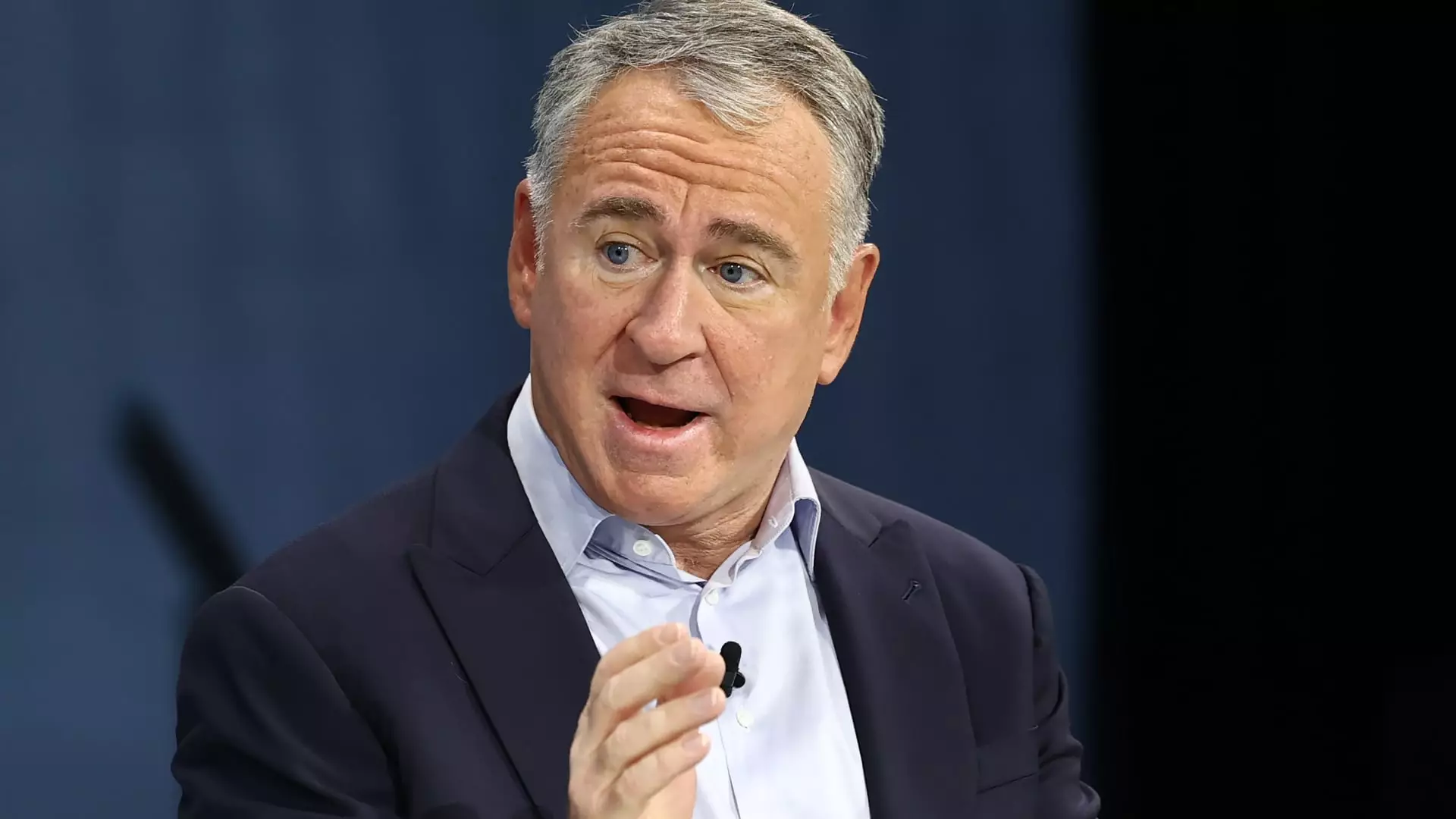Ken Griffin, the CEO of Citadel, recently voiced his concerns regarding the impact of President Donald Trump’s aggressive trade approach. Speaking at the UBS Financial Services Conference in Key Biscayne, Florida, Griffin labeled the administration’s rhetoric as potentially detrimental to the future of American trade. Emphasizing that adverse effects have already begun to manifest, he highlighted the risks associated with Trump’s confrontational stance. Such a position, according to Griffin, undermines the reliability of America as a trade partner, a notion that could intimidate both corporate executives and policymakers alike.
Escalation of Trade Tensions
Griffin’s critical stance follows Trump’s announcements regarding tariffs, including a significant 25% tariff on steel and aluminum imports. This follows earlier tariffs of 10% on Chinese imports and a temporary freeze on tariffs for Mexico and Canada. The escalating trade tensions signify a drastic shift in America’s approach to global trade, moving away from collaboration towards confrontation. Griffin highlighted that this transformation could alienate allies and discourage long-term economic planning for multinational corporations, a concern that brings to light the uncertain future of international agreements under such tumultuous conditions.
The Citadel CEO pointed out that uncertain trade dynamics could hinder the ability of multinationals to make long-term investment decisions. He noted that when companies are unsure about the trading environment—particularly over a 10- to 20-year horizon—planning for capital investments becomes increasingly difficult. Griffin articulated that a decline in trust between trading partners could lead to a stagnation in economic growth, as businesses become wary of entering agreements that may not hold under volatile political climates.
Moreover, Griffin has previously warned about another potential outcome of the current tariff policy: the rise of crony capitalism. This term describes a situation where business interests and government officials develop closely-knit, mutually beneficial relationships, often at the expense of fair competition and market efficiency. Griffin’s comments suggest that Trump’s protectionist policies could foster an economic environment that favors select industries or companies, thereby reducing overall market competitiveness.
As the U.S. navigates this challenging period, Griffin’s insights serve as a call for reevaluation of America’s trade stance. Business leaders are encouraged to not only assess the current implications of tariffs but also to consider long-term strategies that account for the unpredictable nature of U.S. trade policy. In the face of these challenges, fostering open dialogue between government and industry will be essential in steering America back toward a stable and predictable trade environment, one that can support robust economic growth in the years to come.
Griffin’s remarks underscore a growing anxiety among the business elite about the sustainability of Trump’s trade policies and their implications for America’s economic future. The road ahead will require careful navigation to avoid the pitfalls of isolationism and to pave the way for a more collaborative international trade landscape.

